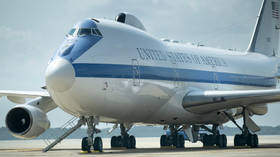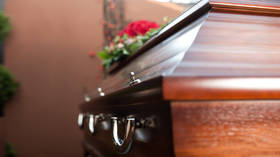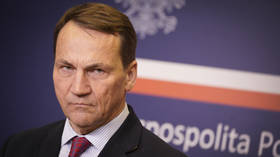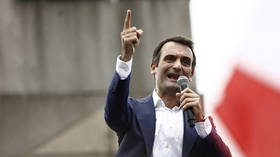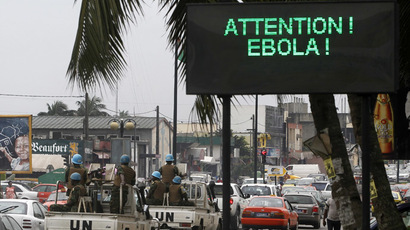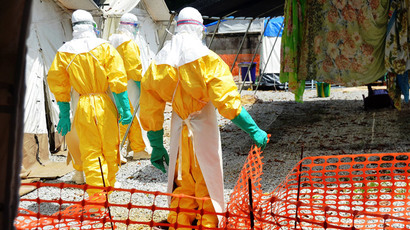‘Devastating epidemic’: MPs say UK aid cuts helped Ebola spread
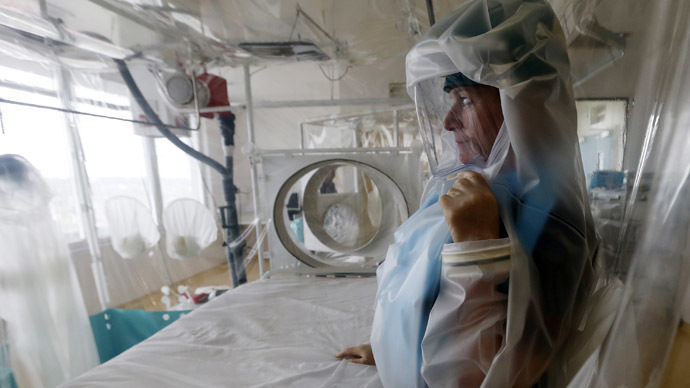
UK aid cuts to West Africa’s two worst Ebola-blighted nations may have contributed to the rapid spread of the deadly virus, MPs have said. This comes as London hosts an international summit to discuss the crisis.
In a report published on Thursday, the International Development Committee said the government’s decision to cut direct aid to Sierra Leone and Liberia by a fifth may have contributed to the epidemic, which has killed more than 3,000 people.
Committee Chair Sir Malcolm Bruce said the scale of the outbreak “may well be connected to declining levels of international support for health system improvements” in the two countries.
According to the World Health Organization (WHO), 3,338 have been killed by the virus so far. A total of 7,178 confirmed cases have been reported since the outbreak began in March.
The virus continues to spread alarmingly rapidly across West Africa, with Sierra Leone, Liberia and Guinea worst affected.
The report said that the spread of the virus highlighted “the dangers of ignoring the least developed countries in the world,” and accused ministers and aid agencies of instead focusing on “higher-profile” places.
The MPs criticized the Department for International Development and the EU for failing to address the fact that aid intended for Liberia’s health sector was misappropriated. The committee found that only $3.9 million (2.4 million pounds) of the $60 million (37 million pounds) donated was transferred from Liberia’s Finance Ministry to the Health Ministry.
“In the midst of this devastating epidemic […] it is wrong for the UK to cut its support to these two countries by nearly a fifth,” Sir Malcom added. “The planned termination of further UK funding to the Liberian health sector is especially unwise.”
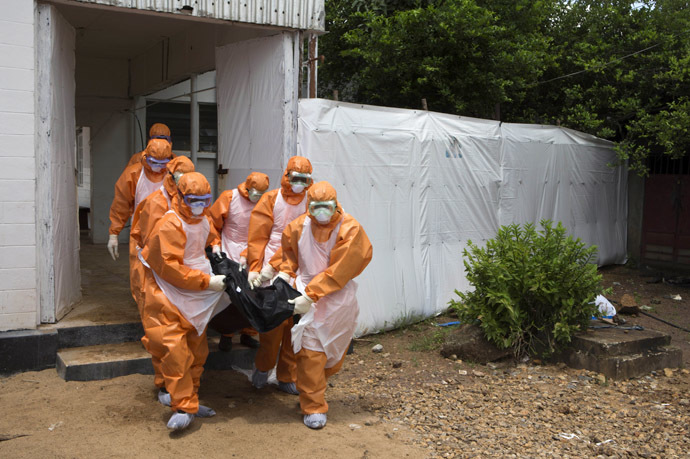
The report comes as Foreign Secretary Philip Hammond will host an international conference on Thursday, in which experts and politicians will discuss how to tackle the crisis and what is needed to contain it.
The conference will be hosted by the UK and Sierra Leone and will “highlight the scale of the Ebola crisis, build on the outcomes and momentum from the UN General Assembly and look ahead to an EU donor conference for the wider West Africa region,” the Foreign Office said.
In late September, the UK set up an emergency committee, COBR, to discuss how the UK can bolster healthcare provision in Sierra Leone. The government pledged to support 700 Ebola treatment beds.
With regard to the UK’s involvement, Hammond said, “It is now vital that the international community translates its concern into action. This outbreak has wide-ranging humanitarian and security consequences for the region, and the world.” He called for a global coalition to defeat the disease.
Ahead of the conference, Save the Children said Sierra Leone continues to be one of the most affected countries and called for greater action. There were 765 new Ebola cases in Sierra Leone last week alone, it said.
The charity said the rate at which the virus spreads – five new cases an hour in that country alone – means that healthcare demands are much higher than what is currently being provided. Save the Children said that there are only 327 beds for patients in Sierra Leone.
Chief Executive Justin Forsyth warned, “This is not only an immediate humanitarian threat, but risks completely undoing the hard work which has been done to build up fragile health systems in Sierra Leone and Liberia after the devastating wars of the past few decades.”





